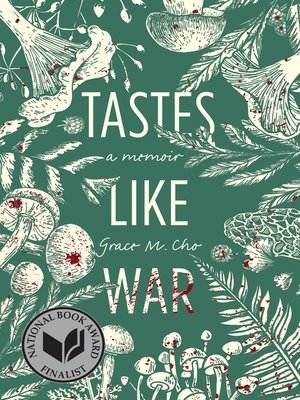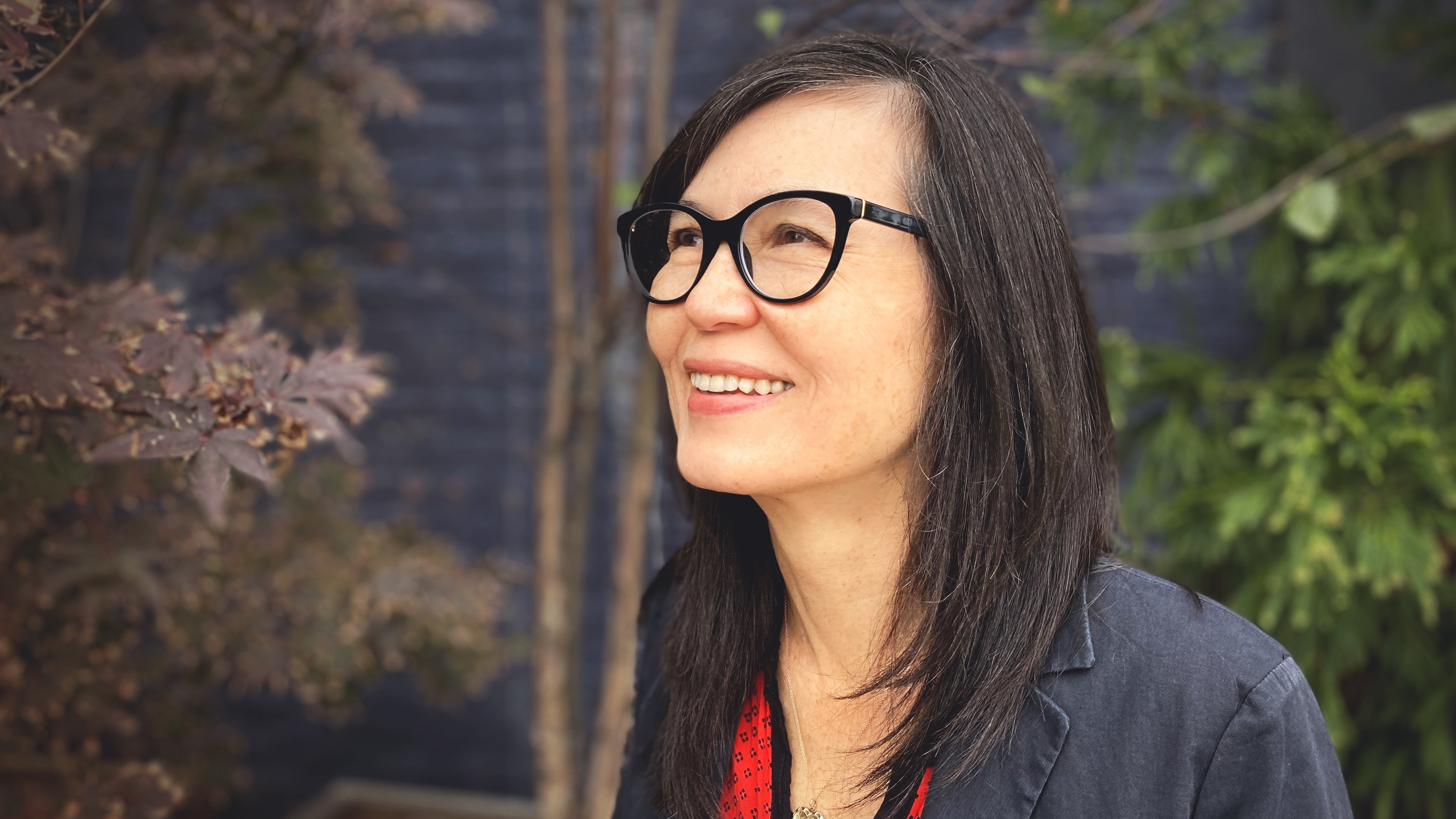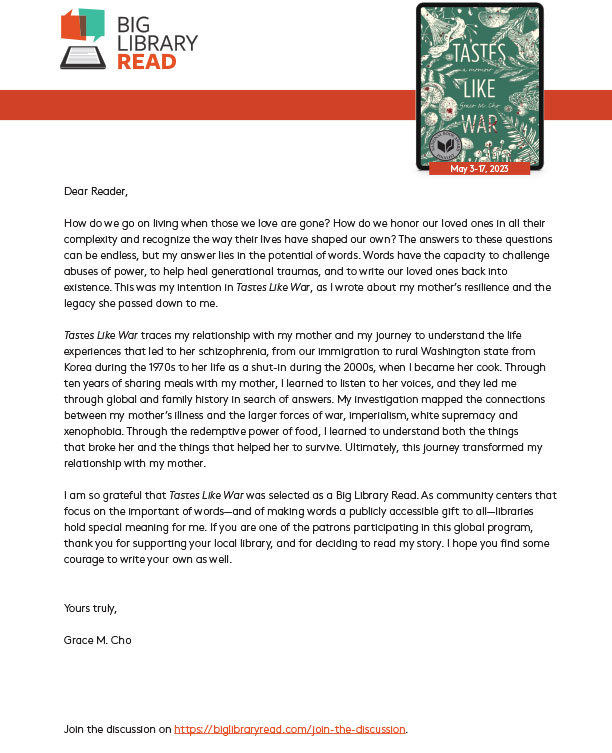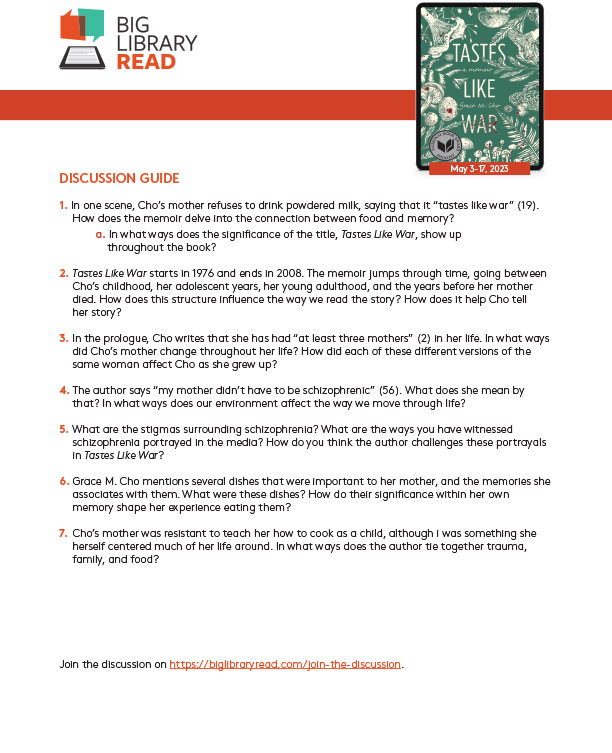
Tastes Like War
Finalist for the 2021 National Book Award for Nonfiction
Winner of the 2022 Asian/Pacific American Award in Literature
A TIME and NPR Best Book of the Year in 2021
This evocative memoir of food and family history is “somehow both mouthwatering and heartbreaking… [and] a potent personal history” (Shelf Awareness).
Grace M. Cho grew up as the daughter of a white American merchant marine and the Korean bar hostess he met abroad. They were one of few immigrants in a xenophobic small town during the Cold War, where identity was politicized by everyday details—language, cultural references, memories, and food. When Grace was fifteen, her dynamic mother experienced the onset of schizophrenia, a condition that would continue and evolve for the rest of her life.
Part food memoir, part sociological investigation, Tastes Like War is a hybrid text about a daughter’s search through intimate and global history for the roots of her mother’s schizophrenia. In her mother’s final years, Grace learned to cook dishes from her parent’s childhood in order to invite the past into the present, and to hold space for her mother’s multiple voices at the table. And through careful listening over these shared meals, Grace discovered not only the things that broke the brilliant, complicated woman who raised her—but also the things that kept her alive.
“An exquisite commemoration and a potent reclamation.” —Booklist (starred review)
“A wrenching, powerful account of the long-term effects of the immigrant experience.” —Kirkus Reviews
Author letter and Discussion guide
Big Library Read interview with Grace M. Cho
About the author

Grace M. Cho is the author of Tastes Like War, a 2021 National Book Awards finalist in Nonfiction, winner of the 2022 Asian/Pacific American Award in Literature, and a TIME and NPR Best Book of the Year in 2021. Her first book, Haunting the Korean Diaspora: Shame, Secrecy, and the Forgotten War, received a 2010 book award from the American Sociological Association. Her writings have appeared in journals such as the New Inquiry, Poem Memoir Story, Contexts, Gastronomica, Feminist Studies, WSQ, and Qualitative Inquiry. She is associate professor of sociology and anthropology at the College of Staten Island, CUNY




